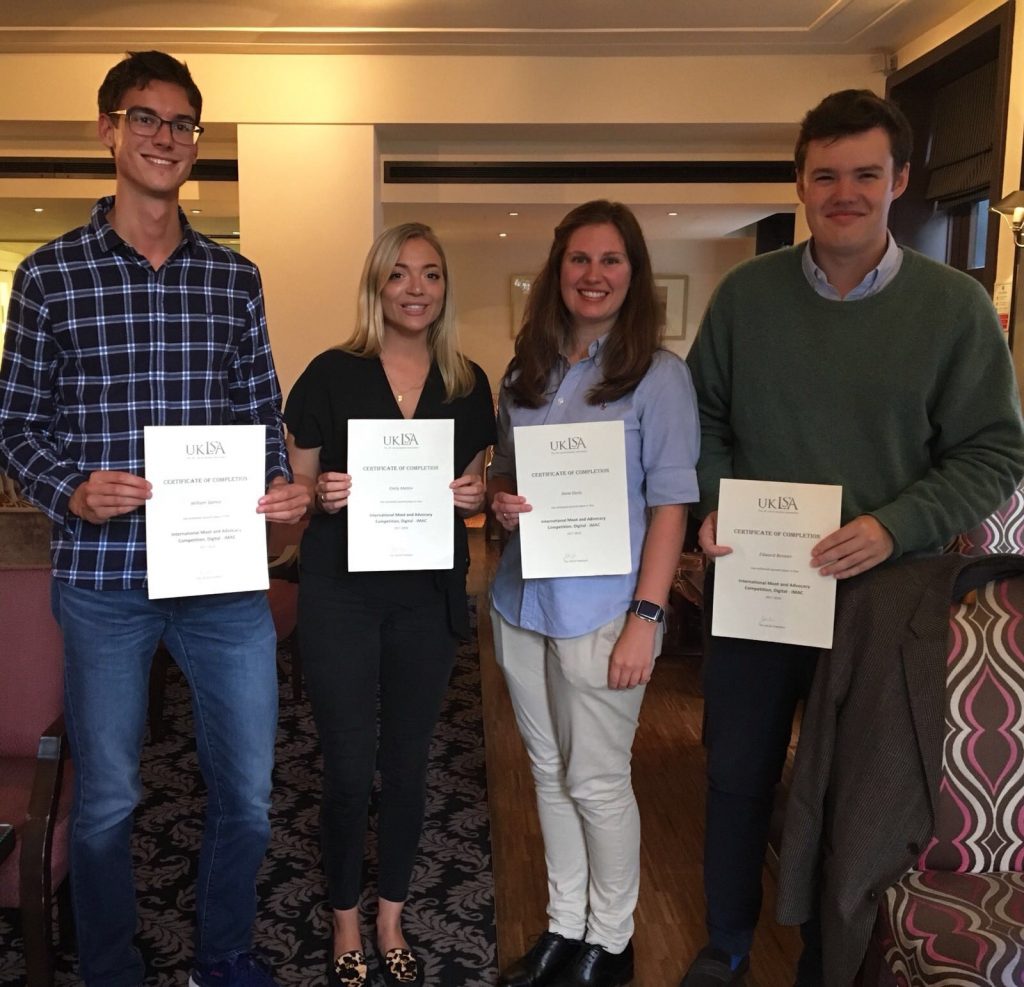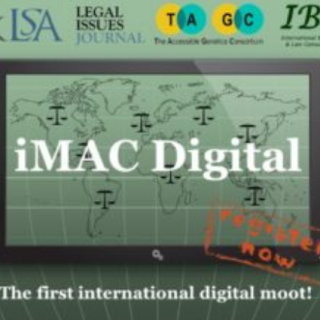Last year City entered the iMac Digitial Moot run by the UKLSA (UK Law Students Association). We entered with some trepidation as it involved submitting video recordings rather than face-to-face mooting, but the teams enjoyed their experience and ended up coming second in the competition. Hear from one of the team, Ilana Davis, who fills us in on the competition in more detail:
iMac = “International Mooting and Advocacy Competition”. This is an unusual moot aimed at preparing advocates for the future of the legal profession. Topics are likely to include technology, genetics, data protection and other modern legal topics.

The first step was to read the problem and decide which jurisdiction to pursue the claim in. Such a decision must be made from the perspective of the Claimant(s) in the case as it is the Claimant who brings the case. It should not be presumed that the best jurisdiction is the UK and the importance of this task should not be underestimated. For example, in the 2017-2018 competition, the organiser announced at the awards ceremony that the winners of the competition won because they were the only team to select the correct jurisdiction in which to bring the claim (the correct jurisdiction was the USA). Students should select the jurisdiction most likely to produce a favourable result for the Claimant.
Instead of live moots, this competition involves submitting three recordings of oral submissions and two skeleton arguments. The first recording is only short (approximately 2 minutes). In this recording, one advocate explains why they selected the jurisdiction they have. The other two recordings are slightly longer (approximately 12 minutes) and will contain the oral submissions on behalf of each party. We recorded the videos using a USB in the recording rooms at Princeton Street. The two skeleton arguments will be one for each party.
The recordings and skeleton arguments needed to be submitted electronically. Due to the size of the files, we used Dropbox and created a link which we submitted to the organiser of the moot.
Recommendations:
- A team of 4 people works well in this moot to balance the research and oral advocacy (2 students in each video of oral submissions). This moot inevitably involves niche areas of law which students are unlikely to know well before working on this moot.
- Research into the broader issues involved in the moot is key. The 2017-2018 moot involved genetics and the organiser explained that research into genetics, as well as the legal position, was vital to understanding the moot problem.
- Keep the skeleton argument to a couple of pages. It should not be a script of the speech used in the video, but an outline of each party’s argument.
Due to the unconventional nature of this moot, it is challenging to learn about a new area of law that no fellow student or tutor may be familiar with and to structure and present confident arguments on behalf of both sides. However, the teamwork that one does not often get in mooting or at the Bar generally is to be enjoyed.

